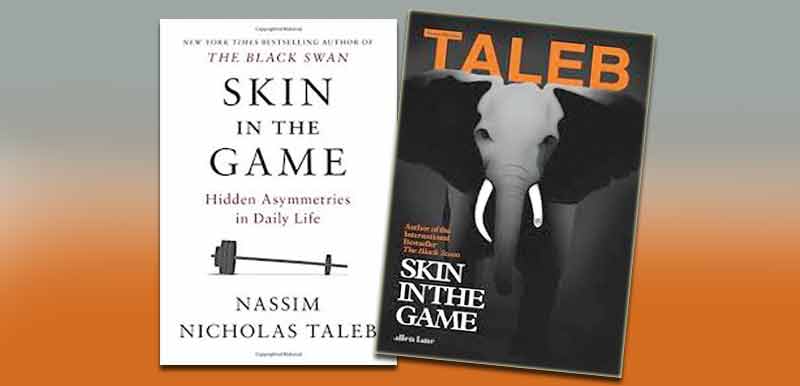“Feeling another person’s emotions does not innately make you a good person.”
– Devon Price
…it also makes very little difference if taken at face value.
Empathy + skin in the game + long term considerations (knock-on effect, dependencies) ⇒ Solution
This might seem like a controversial topic, but at this point, it’s necessary to add some sanity to the design, product, services, and tech worlds. Empathy is a great start, but not the answer.
Let me explain using a few examples.
- If you’d ask a person on the street what empathy means, they would probably describe it as feeling what you believe another person might be feeling in a given situation. This following article covers why empathy is only a good start, but never the complete answer or solution. The author argues that the issue with empathy is that people practice it too literally. For example, you might feel the pain of the developing world and starving people across the globe. Because of the literal and immense pain, a lot of young people would jump on the first opportunity to go there and help first-hand. The issue with this empathetic reaction is that they might cause a lot of other problems by travelling abroad to help build a new house. Quite frankly the expense, if put in the right hands, could have helped more people without any of the side effects (e.g. climate impact).
On the flip side, if that young person wants to make a lasting impact they shouldn’t use empathy literally. They should do the opposite. For example, it makes much more sense for them to focus on long term outcomes and embrace the current benefits of a developed system. This could enable to get a degree (or not), make (or save) a fortune, start a fund (or raise awareness to build the numbers), distribute the acquired wealth for less fortunate regions or causes, and as a result make a more significant, lasting impact. Of course, this example is overly simplistic, but you might get why empathy is a starting point albeit an essential one: http://bit.ly/empathyoverrated
- From the design perspective, this next gem is by the HCD pioneer himself – Don the don, Norman. If you don’t know about him yet – he’s a person who coined the term “user experience”. He notes that “Experts coming in and telling people what to do is also really paternalistic and doesn’t work. Experts don’t understand the local culture. They don’t understand the abilities, skills, and real needs of the people they’re trying to help.” Don also addresses how solely empathy-driven human-centric design typically treats the symptoms rather than solve the root cause of the problems. The missing piece? The local people involvement. While external consultants and designers can empathize, nothing beats the combination of external resources and deep-rooted local insight. https://adobe.ly/2EWUMDU
- Talking about day-to-day scenarios, without empathy, you’d be the worst designer and a terrible leader. Empathy is essential to lead and be a part of successful teams. Or is it? For example, what would you call people who lack empathy? DICKS could be one of them. It’s also a title and theme of one of the Youtube short films that I get in my feed suggestions now and then. It’s a must-watch for developing designers that cover famous people who are sometimes dicks. But does every designer need to be a DICK to be successful? Not going to spoil it, give it a watch:
- I’m a firm believer in exposing yourself to information that challenges what’s taken for granted, built-in biases and beliefs. A simple example of this could be more liberal people seeking to understand more right-leaning material, e.g. people who aren’t fans of Trump reading one of his books. Might sound mad, but it’s reasonable to request to empathize with opposing forces to arrive at better conclusions.
For example, one of my favourite books, Ayan Rand’s Atlas Shrugged is a long and heavy take that covers the philosophical system of Objectivism. In short (and borrowed from Wikipedia) Objectivism can be summarized as: “being moral consists in being rationally selfish or egoistic. Rational egoism, the centrepiece of Objectivism, holds that each individual should act in his own best interest and is the proper beneficiary of his own moral action.” – almost the opposite of empathy.
As a designer, one must understand both sides of common dichotomies to make better informed and arguable more up to date conclusions. And that’s why I always recommend exposing, debating, and for the lack of a better term EMPATHIZING with opposing ideas. If you hate the lack of empathy in the current system(s) read the Atlas Shrugged.

- Do you remember the hype around mindfulness meditation increasing empathy? This month’s interesting psychology study pick unpacks this behavioural theory into a few fundamental notions that might counter what we think we know: 1) short mindfulness practice (e.g. meditation) is not enough to build empathy, 2) mindfulness practice improved ‘mind-reading’ in non-narcissistic, but 3) reduced and made it worse it in narcissistic people. The point being, empathy can’t be forced or expected to develop by short stints of mindfulness. The missing part as per Don Norman’s article is Skin in the game. Worth a further read on the study here: http://bit.ly/midfulnessstudy
- Skin in the game is a fundamental theory any designer needs to know. It comes from Nassim Taleb’s book with the same title and should be inseparable from empathy as we know it. The skin in the game is all about ethnographic exposure to real problems first-hand. As a result, it makes for much better leaders in those specific contexts.A current and related example of this is the COVID19 pandemic in UK. In short, PM Boris Johnson got infected with coronavirus and because of his overweight status had to be treated in an intensive care unit. While he didn’t care before, experiencing the illness as an overweight person, he then initiated a handful of new directives to raise public awareness of obesity, banned several ad campaigns for promoting unhealthy food, etc.
This is a prime example of how skin in the game works. He didn’t have to empathize with ill people, as that wouldn’t result in any meaningful developments that would have addressed the root cause. Just like in Don Norman’s point: empathy isn’t enough as it would only address the symptoms.

Going back to the book – it’s worth a read as it will help you better utilize the empathy skills you already have in a more meaningful way. Better yet, you won’t have to get COVID to solve public issues meaningfully:

- Therefore:
Empathy + skin in the game + long term considerations (knock-on effect, dependencies) ⇒ Solution
